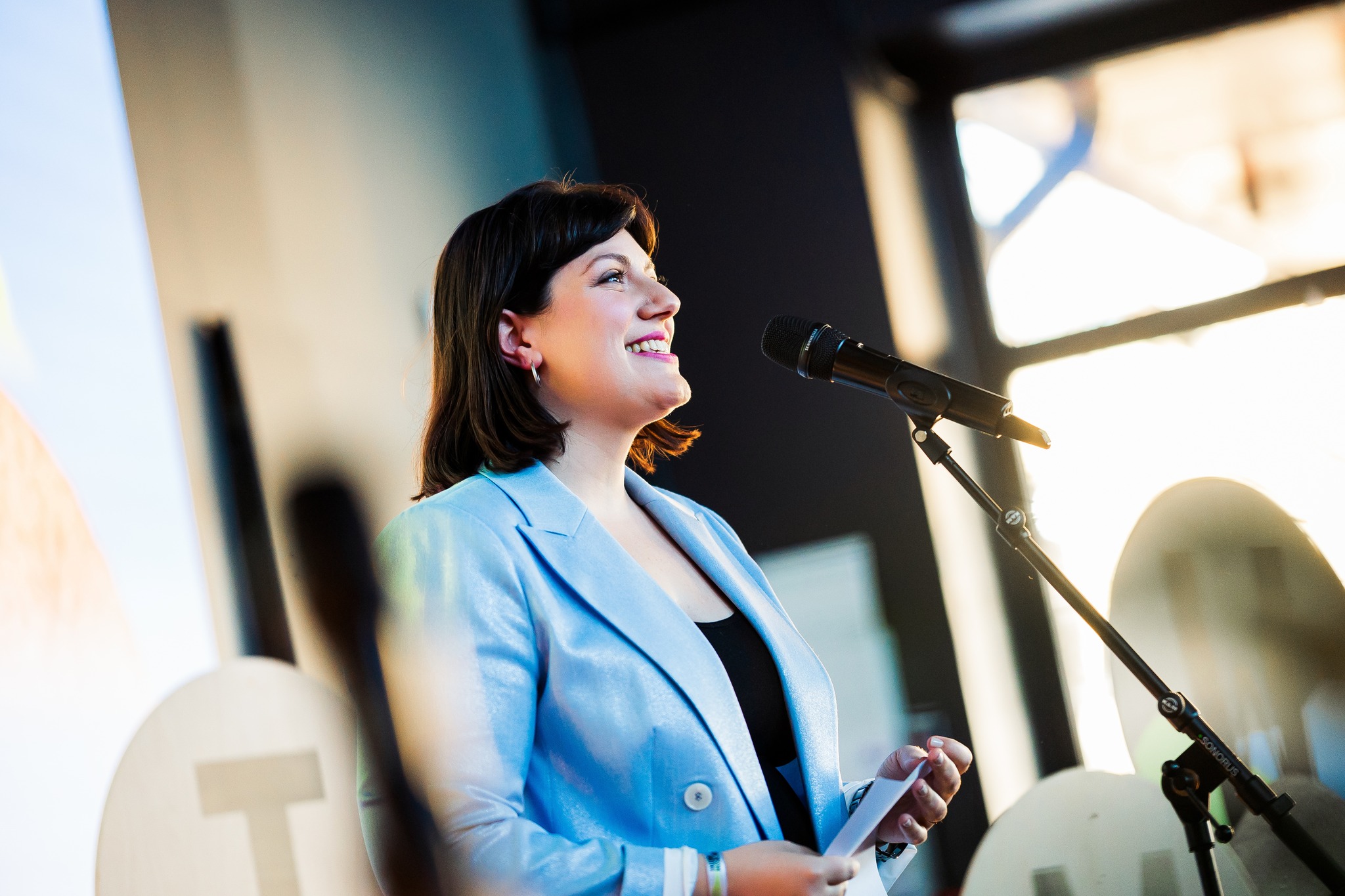News

Opening words at the Tallinn Music Week Conference 2025 by Ave Sophia Demelemester, Director of Music Estonia
President Kersti Kaljulaid,
H.E. Ambassador of Ukraine to Estonia, Maksym Kononenko,
Minister of Culture Heidy Purga,
Dear guests and representatives of the music industry,
On behalf of Music Estonia, it is a true honor to greet you at the opening of this year’s Tallinn Music Week conference. Our ongoing collaboration in co-curating the conference programme together with our teams is incredibly meaningful. It allows us to collectively address the most acute topics in the industry and set the course for development.
This year marks a special start for us. We launched our first dedicated music tech programme, TechTrack, and today, we’ll witness its first results as the six teams from Estonia pitch their ideas to experts, investors, and mentors. In just a few hours, three winning teams will be announced right here in this hall. It’s been inspiring to follow this journey, and we believe these ideas will open new doors and collaborations. This also marks a wider Baltic Sea Region collaboration, offering, in the end, concrete proposals to the policymakers to help scale these efforts and pilots further.
At the same time, we must ask ourselves — are we ensuring equal opportunities for our industry on a global scale? Should we rethink our models to be more efficient when it comes to music import and export? For instance, yesterday’s Policy Lab brought up, apart from data issues, the topic of taxation on streaming platforms, which is used only by some of the countries in the music industry — a step that could shift the way funds are redistributed back to the industry. It’s only one example of the new thinking required to navigate today’s platformisation challenges, and which could be used also in other parts of the music sector. A healthy home market and equal opportunities are essential for nurturing a vibrant music industry. It’s not just about economic output, which we tackle from the export angle also tomorrow, but about supporting a wider ecosystem that enables growth. As Virgo Sillamaa, a music policy researcher and previous Director of Music Estonia, wisely noted, we must also be mindful of the narratives we create — how we talk about our industry, its needs, and its people — to be more sensitised.
Leadership is also evolving. Through initiatives like Keychange, we’re seeing a new generation of leaders stepping into the spotlight, equipped with knowledge, vision, and a global outlook. In such a complex world, the best thing we can do is support this growth and recognize the music industry for what it truly is: a rich, multilayered system. In an increasingly uncertain world, a globally connected music ecosystem serves as a form of cultural defense. From global crises to regional tensions, our industry has a lot of power to connect and start a dialogue. That’s why it’s more important than ever to have a new skillset for a more equal and diverse music world.
Tallinn Music Week has been going strong for 17 years — the largest gathering of its kind in the Nordic-Baltic region — drawing, in a very elaborated way, attention to the current moment. But as I highlighted yesterday as well, it’s an absolute honor that our dear neighbor Latvia is launching its very first Riga Music Week. Poland is preparing to host, in the coming months, its own Music Week, and I recently witnessed the first India International Music Week. Even at the presidential level, new events such as France Music Week will be kicked off, where we see the fusion of music and tech, blending into fashion — a powerful message about the importance of creativity and culture. We see a global movement here. These gatherings are more than events — they are statements. They bring people together, foster shared thinking, and help us protect and promote our identities.
Thank you — and have a very enriching Tallinn Music Week conference!